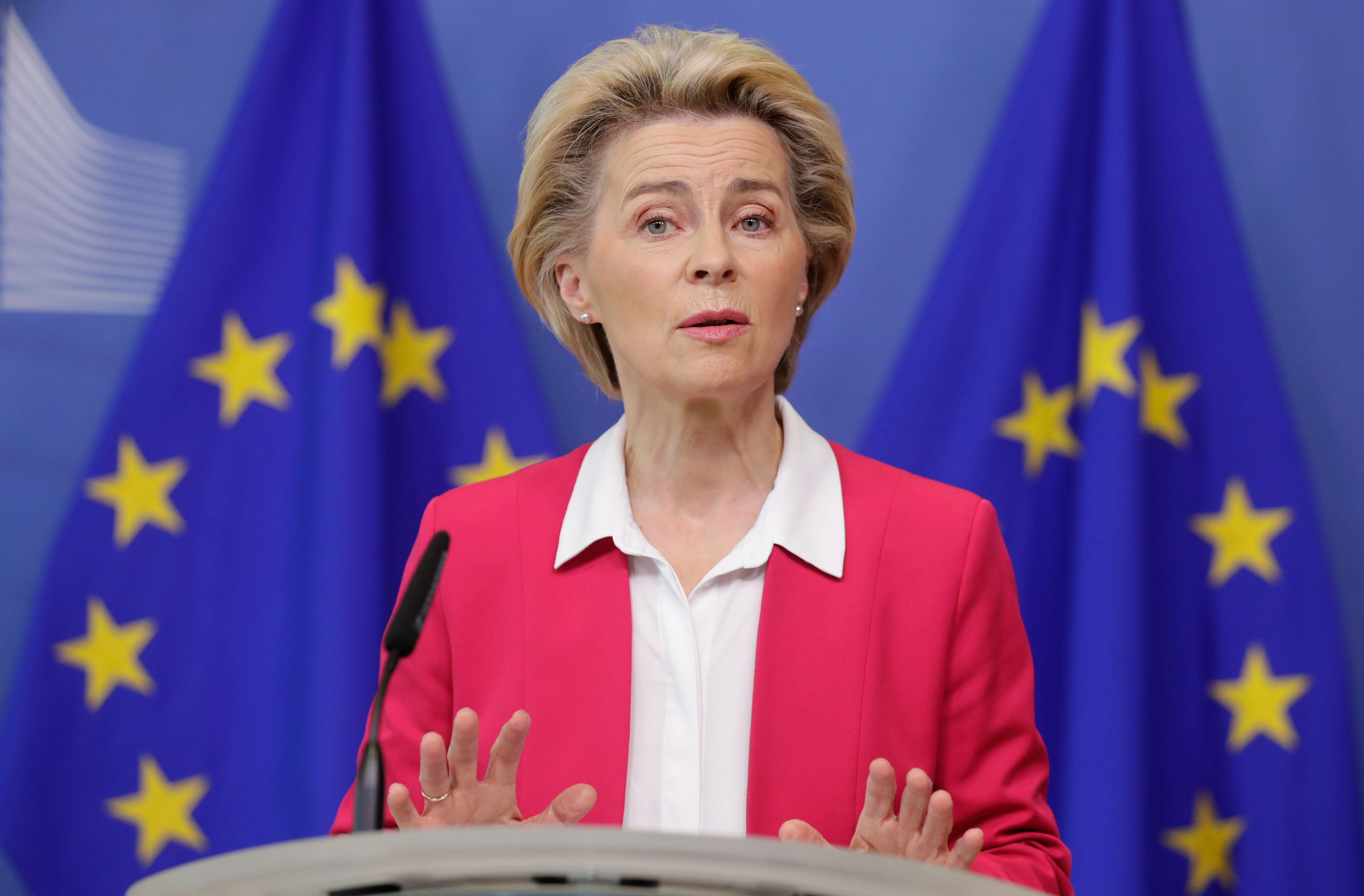EU tries yet again to fix broken down asylum system
The European Union unveiled Wednesday a major overhaul of its asylum rules, hoping that more countries will be prepared to share responsibility for people landing on Europe’s shores seeking sanctuary or better lives."

Conceding after years of chaos and dispute that its costly asylum system is broken, the European Union announced Wednesday a major overhaul of the rules in the hope that more countries will finally be prepared to share responsibility for people landing on Europe’s shores seeking sanctuary or better lives.
The arrival in Europe in 2015 of well over 1 million migrants most of them refugees fleeing conflict in Syria, sparked one of the EU’s biggest political crises. The bloc, which now numbers 27 nations following Britain's departure earlier this year, has been riven by disputes over who should take responsibility for them, and whether every member state, including those with limited or no sea access, should be obliged to help.
The arguments rage on even though the entry of unauthorized migrants into the world’s biggest trading bloc has dwindled to a relative trickle in recent years. Some 140,000 people arrived last year, compared to around 2 million migrants who entered legally, the European Commission says. Turkey, Lebanon and Jordan have had to cater to far more.
National responses vary from erecting razor-wire fences, to ignoring emergency calls from poorly maintained, overcrowded boats in the Mediterranean. On occasions, people have been left to languish on ships rather than allowing them to find safe harbor. Aid groups and European citizens have also been criminalized for trying to help out.
“The old system to deal with it in Europe no longer works,” European Commission President Ursula von der Leyen told reporters in Brussels.
She said the “New Pact for Migration and Asylum” offers Europe “a fresh start.”
“We want to live up to our values and at the same time face the challenges of a globalized world," she said. “Europe has to move away from ad-hoc solutions and put in place a predictable and reliable migration management system.”
The proposals hinge on a simple idea. Members of the EU could help ease the load on those countries that have seen the most migrant arrivals by sea, like Greece, Italy, Malta and Spain, by taking in some of the refugees or providing other material and logistical support.
Those not willing, could take charge of deporting people whose applications are refused. This option might suit Austria, the Czech Republic, Hungary, Poland and Slovakia, who are notoriously reluctant to accept refugees. Hungary and Poland even launched a legal challenge against a failed EU scheme for mandatory migrant quotas set up in haste after the 2015 influx.
The catch is that it would involve “flexible forms of support starting off on a voluntary basis.” Stricter requirements “based on a safety net” would be imposed should any member country be caught in a potential crisis like Greece was in 2015, when hundreds of thousands of Syrian refugees made the short — but sometimes deadly — journey from Turkey.
So far, voluntary schemes have tended to fail.
The proposals suggest the EU will continue with its policy of holding unauthorized migrants in the Greek islands until they can be sent away. Earlier this month, a blaze destroyed the Moria refugee camp on Lesbos on Sept. 9. Aid groups have warned for years about the state of the camp, where more than 12,000 people lived in facilities meant for 3,000, and say it stands as a monument to EU policy failure.
Von der Leyen said that the EU has agreed to set up a joint pilot project with the Greek authorities “for the management of a reception center.” She said a “task force will help improve conditions for people on the island in a durable manner.
“Together, we have to show that Europe manages migration in a humane and effective way,” von der Leyen said.
The migration pact proposals are sure to spark heated debate among member countries. Nevertheless, the commission said that it wants EU countries and the bloc’s parliament to adopt the reforms by the end of the year.
Bookmark popover
Removed from bookmarks